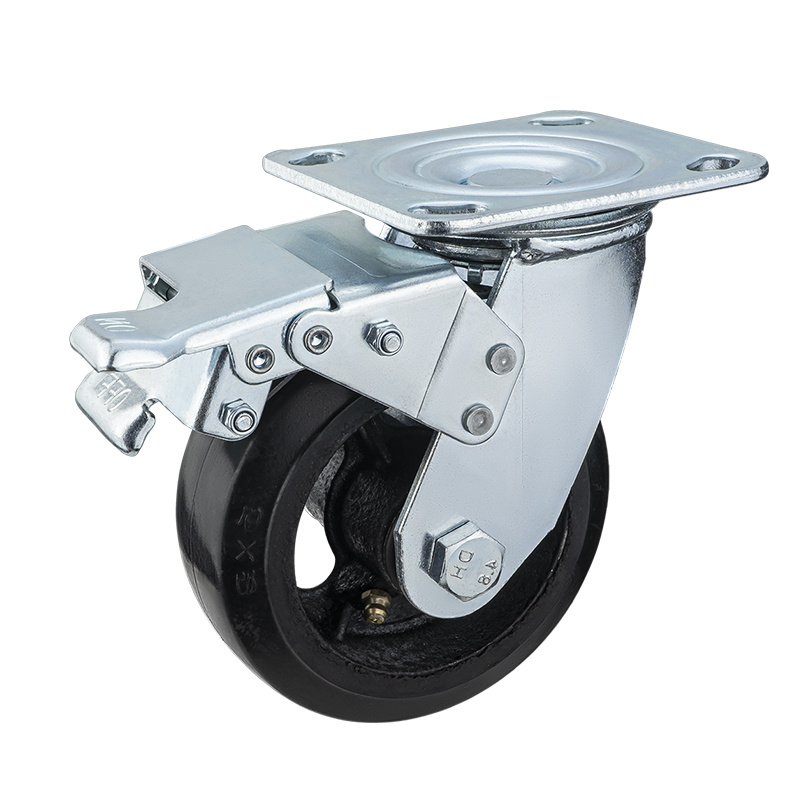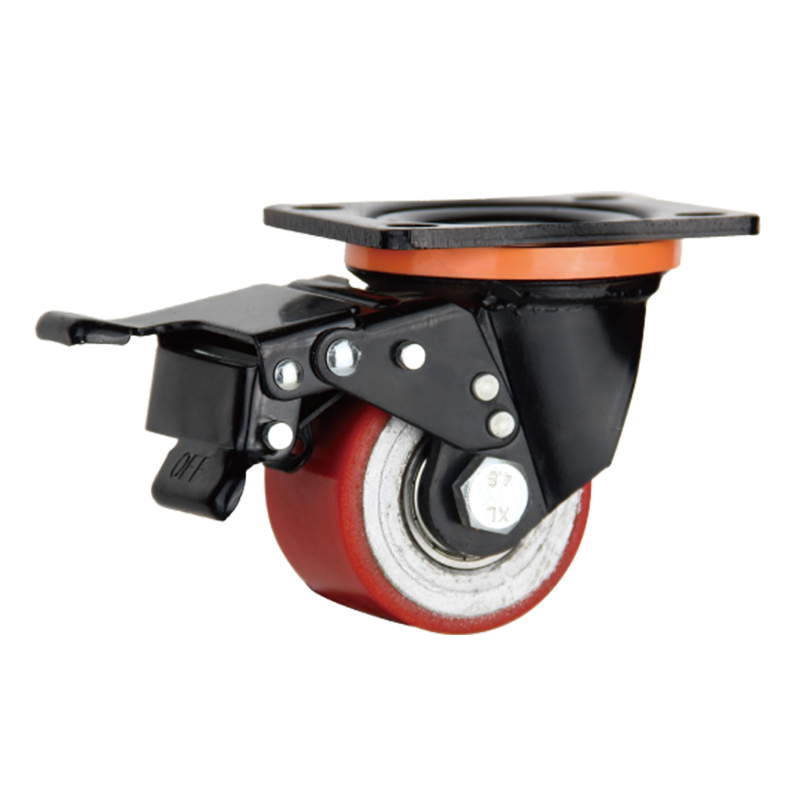BLOG
The Essential Guide to Industrial Casters: Choosing the Right Wheels for Your Application
2025-07-26
In the world of hardware tools and components, industrial casters play a pivotal role in enhancing mobility and efficiency. These specialized wheels are designed to support various loads and withstand rigorous conditions, making them essential for numerous applications, from warehouses to manufacturing plants. Here, we delve into the key considerations for selecting the right industrial casters fo
In the world of hardware tools and components, industrial casters play a pivotal role in enhancing mobility and efficiency. These specialized wheels are designed to support various loads and withstand rigorous conditions, making them essential for numerous applications, from warehouses to manufacturing plants. Here, we delve into the key considerations for selecting the right industrial casters for your needs.
**Types of Industrial Casters**
Industrial casters come in various types, each tailored to specific applications. The most common types include:
1. **Rigid Casters**: These casters have a fixed wheel that only moves in a straight line, offering stability and strength. They are ideal for applications where directional changes are minimal.
2. **Swivel Casters**: Designed to rotate 360 degrees, swivel casters provide superior maneuverability. They are commonly used in settings where items need to be moved around corners or in tight spaces.
3. **Braked Casters**: Featuring a locking mechanism, braked casters ensure stability when stationary. This is particularly important in environments where safety is a priority.
4. **Specialty Casters**: These are designed for specific applications, such as high-temperature environments, clean rooms, or heavy loads. Understanding your application will help you choose the most suitable type.
**Load Capacity and Material Selection**
When selecting industrial casters, it is essential to consider the load capacity. Each caster has a rated load limit, typically indicated by the manufacturer. It's crucial to choose casters that can safely support the weight of the items being transported. Additionally, the material of the wheels (such as rubber, polyurethane, or metal) affects not only the load capacity but also the floor surface compatibility and noise levels during movement.
**Environmental Conditions**
The environment in which the casters will be used is another critical factor. For instance, if the casters are intended for outdoor use, materials that resist corrosion and weathering are essential. Conversely, if they will be used in clean environments, such as hospitals or food processing facilities, choosing non-marking and easy-to-clean materials is advisable.
**Applications in Industry**
Industrial casters are utilized across a wide range of industries, including manufacturing, healthcare, logistics, and retail. Understanding the specific needs of your industry can guide you in selecting the appropriate casters. For example, in manufacturing, heavy-duty options may be necessary, while in healthcare, low-noise and easy-to-maneuver options are preferred.
In conclusion, selecting the right industrial casters involves understanding their types, load capacities, material properties, and environmental conditions. By carefully considering these factors, professionals in the hardware tools and components industry can enhance efficiency and safety in their operations, ensuring that the right wheels are in place for optimal performance.
**Types of Industrial Casters**
Industrial casters come in various types, each tailored to specific applications. The most common types include:
1. **Rigid Casters**: These casters have a fixed wheel that only moves in a straight line, offering stability and strength. They are ideal for applications where directional changes are minimal.
2. **Swivel Casters**: Designed to rotate 360 degrees, swivel casters provide superior maneuverability. They are commonly used in settings where items need to be moved around corners or in tight spaces.
3. **Braked Casters**: Featuring a locking mechanism, braked casters ensure stability when stationary. This is particularly important in environments where safety is a priority.
4. **Specialty Casters**: These are designed for specific applications, such as high-temperature environments, clean rooms, or heavy loads. Understanding your application will help you choose the most suitable type.
**Load Capacity and Material Selection**
When selecting industrial casters, it is essential to consider the load capacity. Each caster has a rated load limit, typically indicated by the manufacturer. It's crucial to choose casters that can safely support the weight of the items being transported. Additionally, the material of the wheels (such as rubber, polyurethane, or metal) affects not only the load capacity but also the floor surface compatibility and noise levels during movement.
**Environmental Conditions**
The environment in which the casters will be used is another critical factor. For instance, if the casters are intended for outdoor use, materials that resist corrosion and weathering are essential. Conversely, if they will be used in clean environments, such as hospitals or food processing facilities, choosing non-marking and easy-to-clean materials is advisable.
**Applications in Industry**
Industrial casters are utilized across a wide range of industries, including manufacturing, healthcare, logistics, and retail. Understanding the specific needs of your industry can guide you in selecting the appropriate casters. For example, in manufacturing, heavy-duty options may be necessary, while in healthcare, low-noise and easy-to-maneuver options are preferred.
In conclusion, selecting the right industrial casters involves understanding their types, load capacities, material properties, and environmental conditions. By carefully considering these factors, professionals in the hardware tools and components industry can enhance efficiency and safety in their operations, ensuring that the right wheels are in place for optimal performance.
Key words:
RELATED NEWS
Understanding Market Trolley Casters: A Guide for Professionals
2025-09-06
When it comes to enhancing mobility in various applications, market trolley casters play a pivotal role. These casters are designed to facilitate the smooth movement of trolleys, carts, and other equipment in retail, logistics, and industrial settings. Understanding the fundamentals of market trolley casters is essential for professionals in the hardware tools and components industry, particularly
How Industrial Trolley Casters Can Improve Productivity in Manufacturing
2025-08-30
How Industrial Trolley Casters Can Improve Productivity in Manufacturing
Table of Contents
What are Industrial Trolley Casters?
Importance of Casters in Manufacturing
Types of Industrial Trolley Casters
Benefits of Using Industrial Casters
How Casters Improve Workflow
Choosing the Right Caster for Your Needs
Maintenance Tips for Casters
Future Trends in Industrial
Understanding Heavy Duty Leveling Casters: A Comprehensive Guide for Professionals
2025-08-23
Heavy duty leveling casters are critical components in many industrial and commercial applications, offering a perfect blend of mobility and stability for heavy loads. These casters are designed to handle significant weight while allowing for precise adjustments in height, making them an ideal choice for a variety of settings, from warehouses to manufacturing floors.
One of the primary advantages








